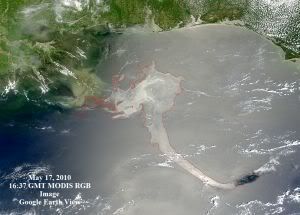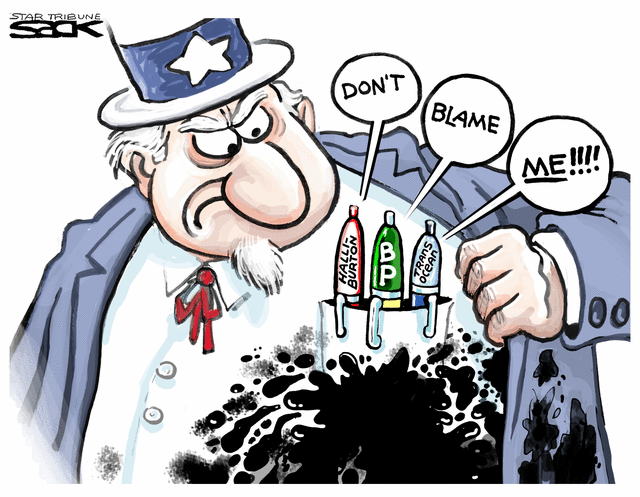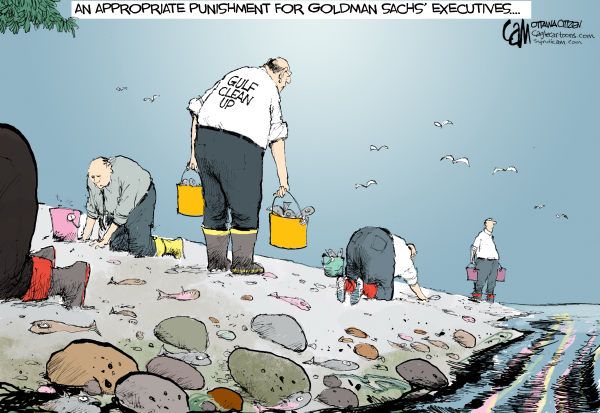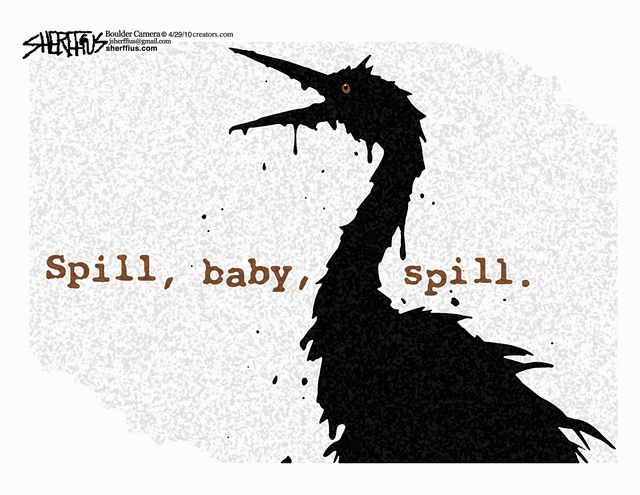From Gale Mead:
CASUALTIES OF THE GULF OF MEXICO DISASTER: Beneath the Surface
Videography and song by Gale Mead www.galemead.comLead guitar: Eric McFadden. Tenor Sax: Federico Martinez.
Carpets of crinoids – cousins of the sea-star – stretched their long limbs languidly into the current for morsels of planktonic food. Colorful tropical fish drifted among gracefully spiraling wire corals. Somber-faced grouper hovered warily while jacks and sharks cruised by, curious about the submersibles lights. Fifty miles south of Mississippi, I was the first human ever to lay eyes on the teeming, thriving, dazzling undersea metropolis that was Salt Dome Mountain. As rich and diverse as Texas Flower Garden Banks National Marine Sanctuary to the west, or Floridas coral reefs to the south, but a little deeper, and totally unexplored.
It was July 29, 2002, and I was a submersible pilot with the Sustainable Seas Expeditions, a joint project of National Geographic and the National Oceanic and Atmospheric Administration, led by my mother, Dr. Sylvia Earle. Fishermen and oilmen have long known the Gulf of Mexico by what they could extract from it with their nets and their drilling rigs. We were there to study it from the inside out.
Salt Dome Mountain is an unexpectedly shallow seamount rising from the depths of the Gulf of Mexico to within 200 feet of the surface. Its just south of the Mississippi coast, just north of where a raging gusher of oil now spews death and destruction with no end in sight. And no beginning in sight either, as the vast majority of this catastrophe is occurring underwater, beyond the reach of television news cameras. The video below is a compilation of images from my dive eight years ago, posted with permission from Sustainable Seas Expeditions. You can find more videos of the undersea life near the blowout by using Google Ocean.
It remains to be seen when or even whether the raging torrent of oil can be stopped, but even in the best case scenario, the damage already done far exceeds what most of us can yet get our minds around. May it at least not pass unnoticed. And may we at long last consider that the consequences of our actions should be weighed before, and not after, the damage is done.

 Video compiled from data produced by The College of Marine Science, University of South Florida, Ocean Circulation Group
Video compiled from data produced by The College of Marine Science, University of South Florida, Ocean Circulation Group 

 The
The  I’ve seen this movie before. In 1989, I was a fraud investigator hired to dig into the cause of the Exxon Valdez disaster. Despite Exxon’s name on that boat, I found the party most to blame for the destruction was … British Petroleum (BP).
I’ve seen this movie before. In 1989, I was a fraud investigator hired to dig into the cause of the Exxon Valdez disaster. Despite Exxon’s name on that boat, I found the party most to blame for the destruction was … British Petroleum (BP).